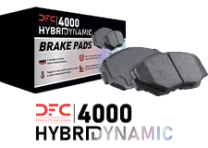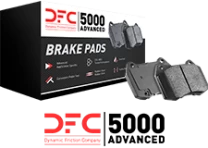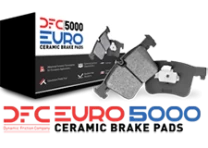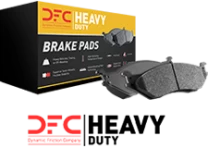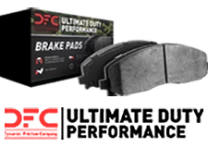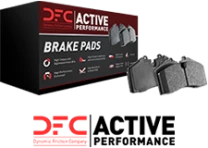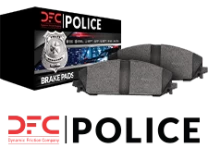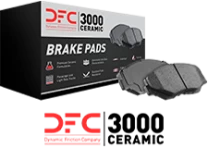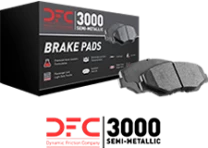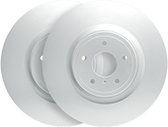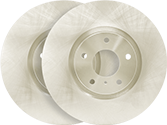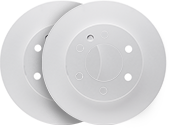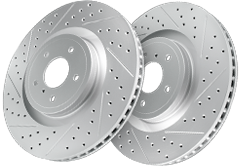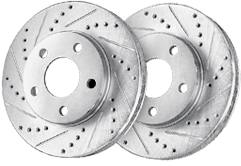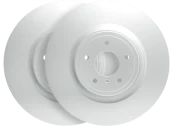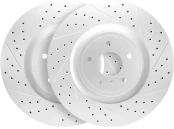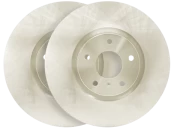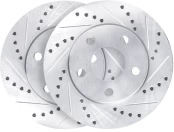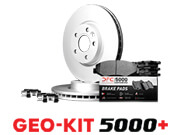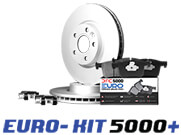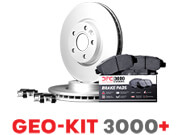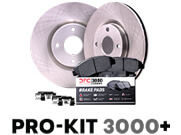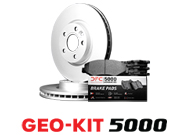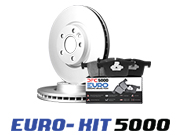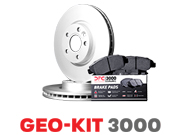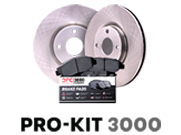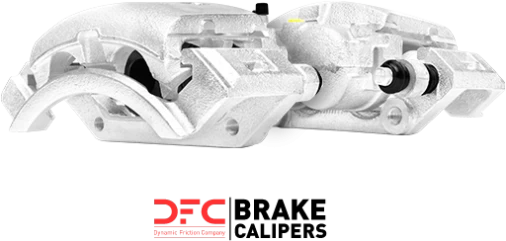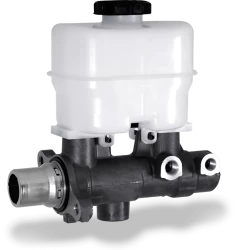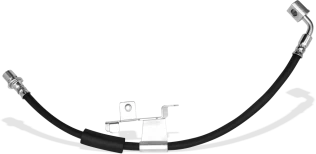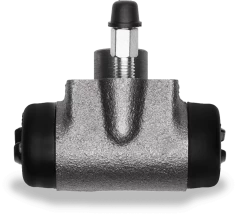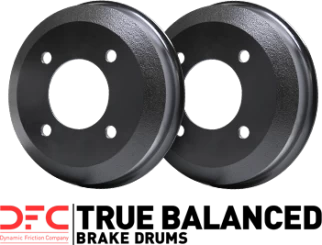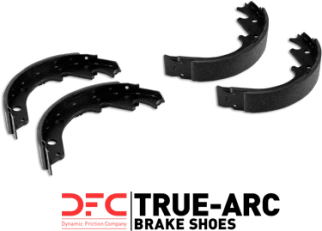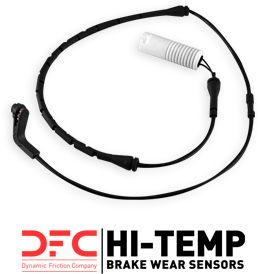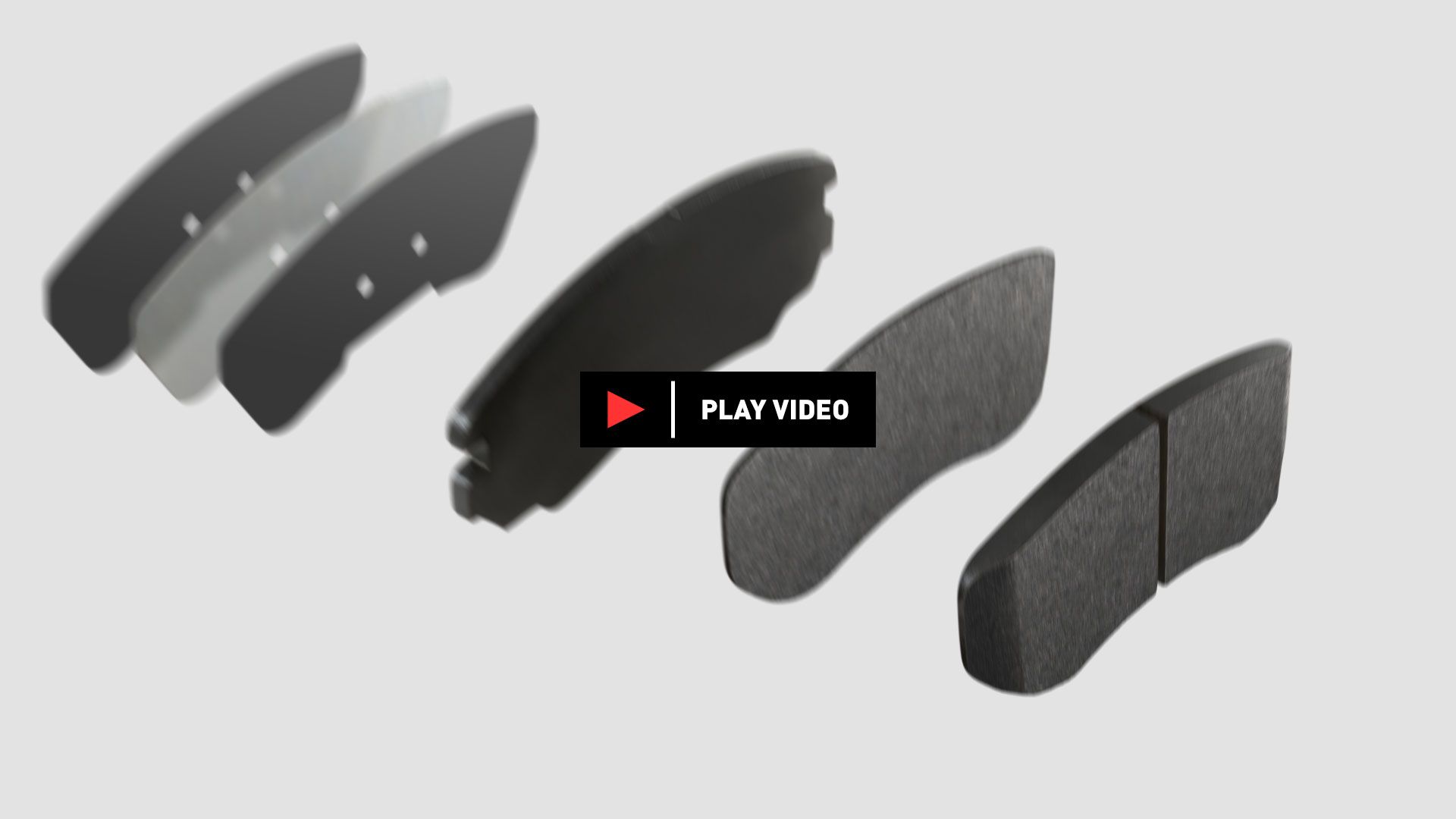5000 Advanced Brake Pads

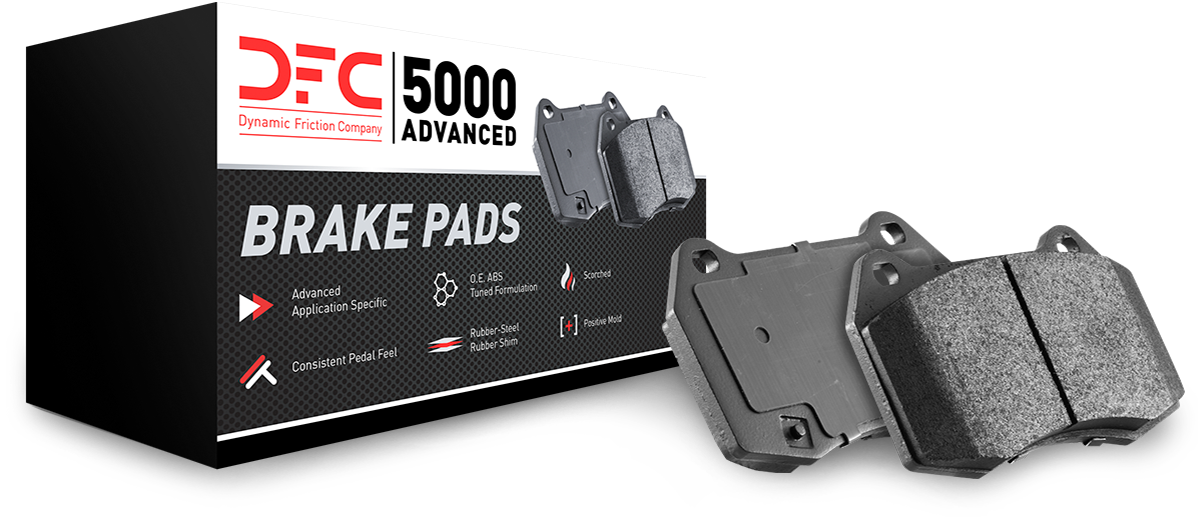
Today, vehicles are increasingly more sophisticated. These vehicles demand the absolute highest quality and performance from their individual components, driven by the move towards autonomous mobility. With this change, the individual components in all the systems need to interact with one another, each depending on very specific parameters designed into each part.
Anti-lock Braking System

Only 20 years ago, ABS was finally making inroads into most mainstream
vehicles. This has been an important development into increasing the
safety capability. Along with this development, friction material selection
became ever more important due to pre-set vehicle computer systems
managing the braking performance of the car using the given parameters
of vehicle weight, brake rotor dimensions, caliper force output, tire
selection, suspension setting, among several others. The only way to
fine-tune the overall braking balance is with, you guessed it, the friction
material.
AUTOMATED BRAKING SYSTEMS

Now, more and more automakers have been installing automated braking systems, a move toward the autonomous vehicle. These systems sense impending collisions and actually take control from the driver and stop the vehicle by itself. The performance demands on braking components have now gone up exponentially. Even in the best circumstances with ABS brakes, a human takes about 2.0 seconds to react to a braking event. Automated braking systems can react in as little as 0.3 seconds! Working in concert with the sensing systems, the braking system is expected to come to a complete stop within a preset distance.
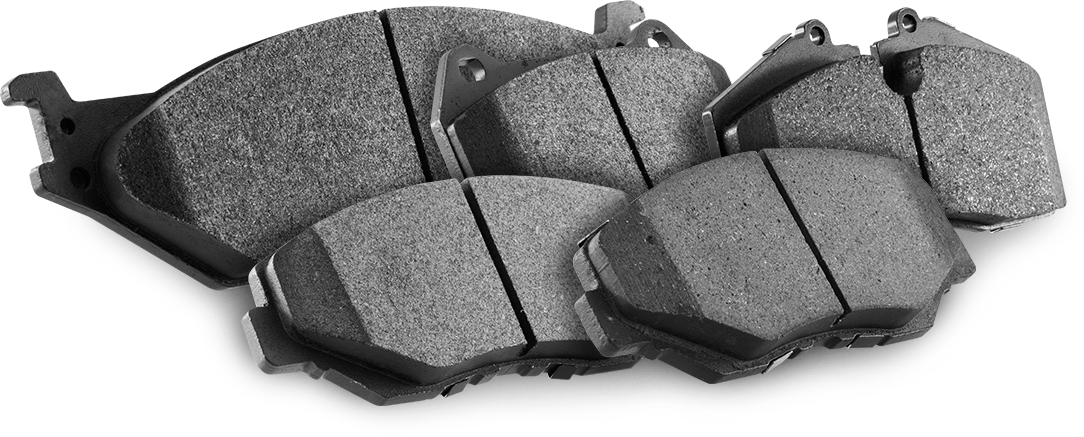
Selected Friction Materials designed to meet the demands of modern vehicles with ABS and Automated Braking Systems
Dynamic Friction Company (DFC) is the first to act upon these new demands by not only reviewing the original equipment brake systems by platform, but specific vehicles within the platform. It is often the case that with specific vehicle tuning, such as a change in wheel and tire size, that the friction material is also changed to compensate for the increased (or decreased) traction capability without changing any of the other parameters in the braking system. We at DFC have taken all of this into account and provide the market with the appropriate friction for each axle of each and every vehicle. This ongoing process requires intense work. Our research team is involved with OEM friction suppliers in 4 continents to provide the market with specifically formulated friction products that meet exacting requirements, whether it be for a family sedan, performance car, or light truck originating from anywhere in the world.
DFC PREMIUM RUBBER-STEEL-RUBBER SHIMS
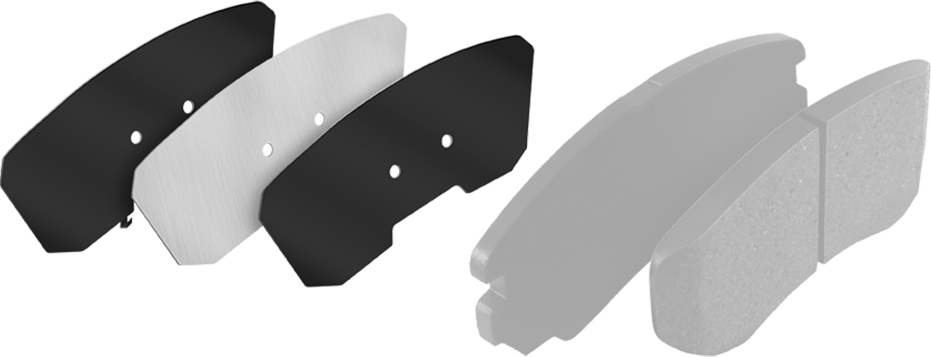
Lastly, the pads are assembled with DFC Premium Rubber-Steel-Rubber shims for improved NVH (noise/vibration/harshness) characteristics.
DFC Premium
Rubber-Steel-Rubber Shims
ADVANCED APPLICATION SPECIFIC /
ABS TUNED FORMULATION
ABS TUNED FORMULATION
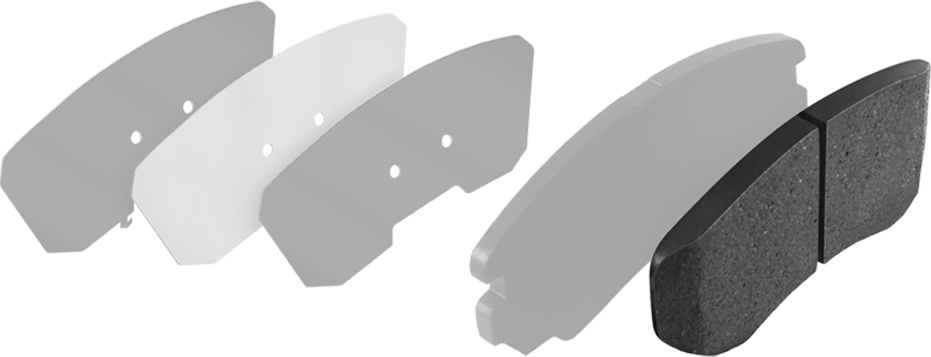
- Specifically formulated for each axle on every vehicle (family sedan, sport compact, or light duty truck) to maintain balanced braking, critical for vehicles with ABS and automated braking
- Carefully selected Original Equipment Manufacturer (“OEM”) formulations across 4 different continents
- Provides correct friction performance, resulting in the safest possible braking
- Rotor-friendly with proven longer rotor and pad life
- Designed to deliver a consistent pedal feel and superb brake response
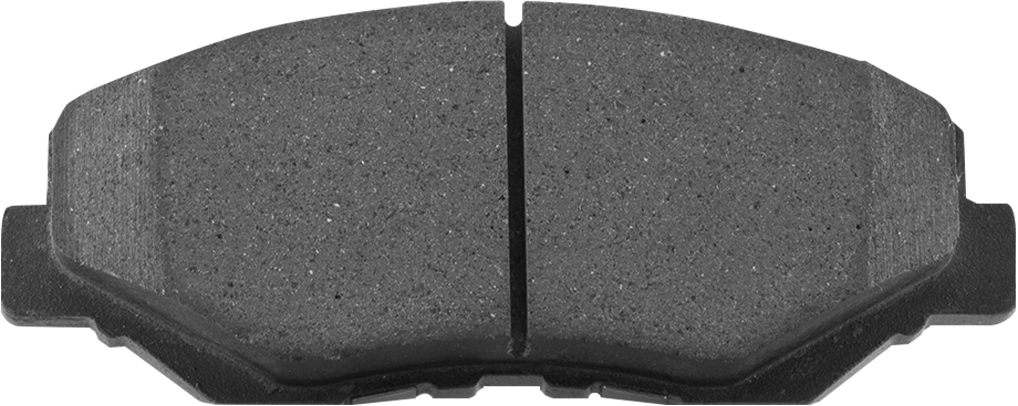
OEM TECHNOLOGY WITH NOISE REDUCTION
& PERFORMANCE FEATURES
& PERFORMANCE FEATURES
- Chamfered and Slotted (where applicable) to reduce noise when braking
- Scorched to remove uncured bonding agents, minimizing the need for initial break-in period and increasing stopping power from the initial stop
- Positive mold to promote consistent friction material density
DFC 5000 ADVANCED FORMULATION BRAKE PADS
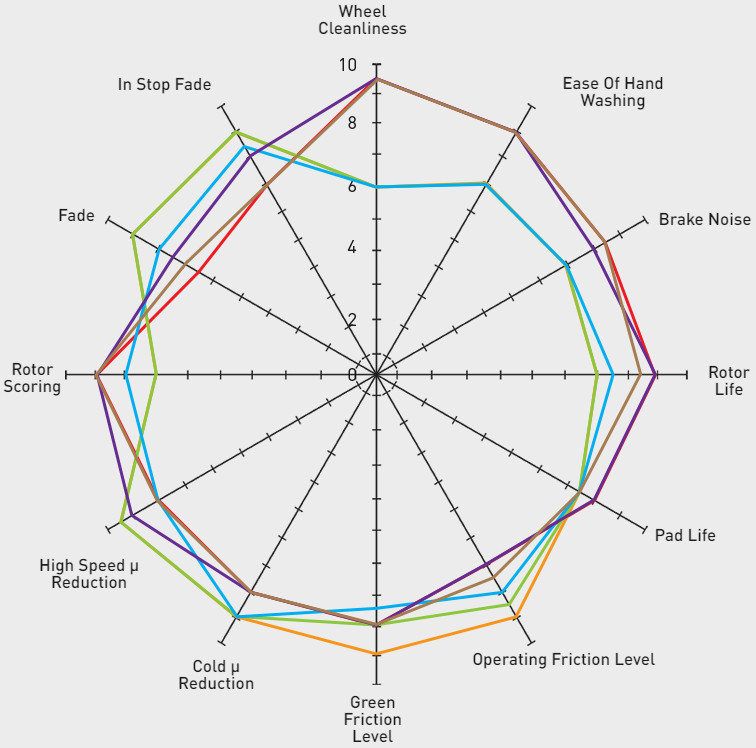
DFC 5000-Most Front (Ceramic)
DFC 5000-Some Front (Hybrid)
DFC 5000-Some Front (Hybrid)
DFC 5000-Some Rear (Hybrid)
DFC 5000-Some Front (Ceramic)
DFC 5000-Some Rear (Ceramic)

 UNITED STATES
UNITED STATES